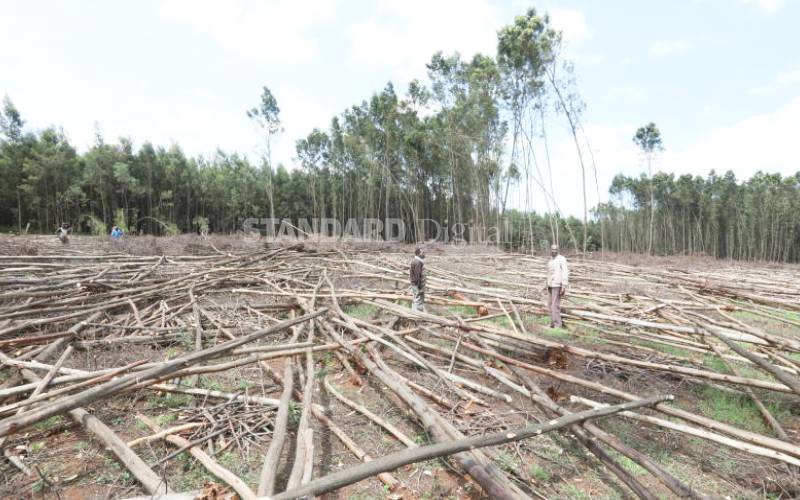×
The Standard e-Paper
Join Thousands Daily

A plantation of wattle trees at Joel Mudahana's 100-acre farm in Eldoret. [Kevin Tunoi, Standard]
When Joel Mudahana converted his 100-acre farm into wattle trees plantation, he thought he would make a breakthrough in life.